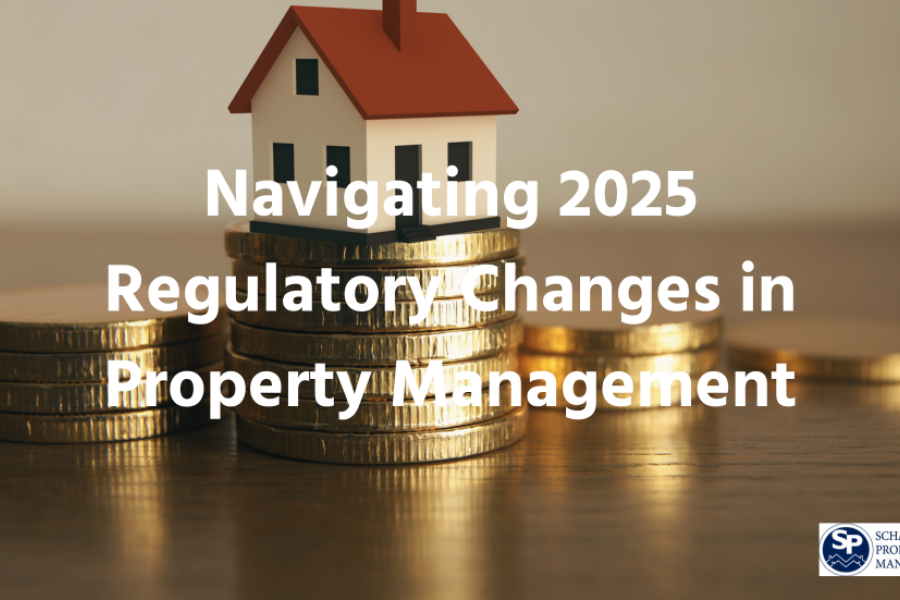
Key Takeaways
- Rent control and tenant protection laws are expanding – landlords face stricter limits on rent increases, evictions, and lease terminations.
- Fair housing and screening rules are tightening – updated guidelines restrict blanket denials and require consistent, transparent screening processes.
- Environmental and licensing standards are rising – new efficiency requirements, property registration, and inspections add compliance steps and costs.
- Digital compliance and transparency are essential – landlords must keep electronic records, provide detailed deposit accounting, and adapt to new reporting rules.
As a landlord already navigating the challenging landscape of rental property management, changes to the regulatory environment in which those properties operate can be a real pain.
But the truth is, these regulations are always evolving, and 2025 has brought yet more changes that you must understand.
But your goals for understanding these new regulations should not just be about maintaining compliance.
You can use your knowledge of these regulatory changes to maximize the value of your assets, promote better relations with tenants, and ensure the long-term growth of your rental property.
In this post, we discuss key updates to the property management regulatory framework in 2025, how these changes impact your rental property, ways to adapt your strategy to stay compliant, and how the new rules may even benefit your business.
Key Property Management Regulatory Updates in 2025
Expanded Rent Control Laws
Many cities have updated laws limiting how much a landlord can raise the rent annually. In some states, new rent control caps now allow for rent increases of no more than 10% per year, while a few states tie the increases to the inflation rate.
Rent control policies are also becoming more widespread as they are increasingly adopted in markets that used to be resistant to them.
.jpg)
In addition to statewide regulations, local governments may have additional requirements. Know what the new rent control law in your area says and revise the lease agreement to make sure it aligns.
Updated Fair Housing Guidelines
These updates target tenant screening practices and disability accommodations. They no longer permit blanket policies that reject tenants’ applications based on their criminal history or low credit scores.
Landlords must provide other tangible reasons for rejecting an application. To avoid discrimination claims along with possible legal liabilities, landlords are required to follow a set of expanded procedures when responding to accommodation requests by tenants and the issue of emotional support animals.
To stay compliant, rental property owners need up-to-date information about protected classes in their state and must have consistent policies and processes for tenant screening.
Enhanced Tenant Protection
Several states have enacted new regulations or updated existing ones to protect tenants from what the law refers to as “sudden and unfair removal.”
Some jurisdictions now require that, before initiating eviction processes against tenants, landlords must first offer mediation or a payment plan. In many states, informal and no-cause evictions are now illegal.
Depending on the location, landlords may need to provide a justifiable basis for not renewing a tenant’s lease. Longer lease termination periods are also mandated, along with more protections for renters on housing assistance programs.

These updated laws also include mandates on how landlords must address pest infestation and mold, as well as reinforced privacy rights that prohibit landlords from entering a rental unit without giving 24 hours written notice.
Environmental and Energy-Efficiency Requirements
Rental property owners and operators are encouraged to upgrade their rental properties to make them more energy efficient and environmentally sustainable.
Some cities have enacted stricter energy standards for buildings and require landlords to carry out upgrades on insulation and heating systems in specific categories of rental properties.
These regulations sometimes include the installation of new energy-efficient appliances. Moreover, landlords are required to disclose the past energy costs of a rental to prospective tenants or the unit’s energy usage.
Property Registration and Licensing Laws
More than a few cities now require that landlords obtain a license and also register their rental property annually. Since the licensing and registration processes require the rental properties to be inspected, these laws seek to ensure that housing standards are maintained.
Properties that fail inspection will not be allowed to function as rentals, and landlords may be subject to fines. Although the registration, licensing, and inspection fees vary by location, these are additional costs that landlords must factor into the operational expenses for their property.
Security Deposit Transparency
New regulations require more transparency in the handling of tenants’ security deposits. Landlords must provide itemized statements/receipts for all deductions from the security deposit.

Additionally, landlords must provide upfront disclosure on the condition of their property, along with detailed information on all fees.
Record-Keeping and Digital Compliance
Landlords must maintain digital versions of leases, communications, and payment histories. In some cases, notices and forms must be submitted electronically.
For landlords, this means date-stamped digital records that are secure, as well as investments in property management software and professional services.
Rent Payment Reports
Landlords may now report tenants’ rent payments to credit bureaus. This encourages tenants to pay the rent on time to improve their credit.
Strategies for Navigating the New Rules and Regulations
Beyond encouraging fairness and transparency, these regulations are a call to landlords and investors to be more professional and accountable in how they manage their properties. Some of the ways they can do this include:
- Updated lease agreements that reflect the new realities mandated by these laws
- Investing in and actually using new technologies to reorganize their operations.
- Building trust by being timely and more clinical in communications with tenants.
- Training property maintenance team and vendors to ensure compliance
- Working with compliance experts to make sure you are not overlooking anything.
In Conclusion
To conclude, these new regulations provide a platform for the best property owners and landlords to distinguish themselves from the rest.
Landlords who successfully implement these strategies to make their properties compliant will not only command higher rents, but they will also see higher tenant retention rates.
Contact Schambs Property Management today to learn more about our services!